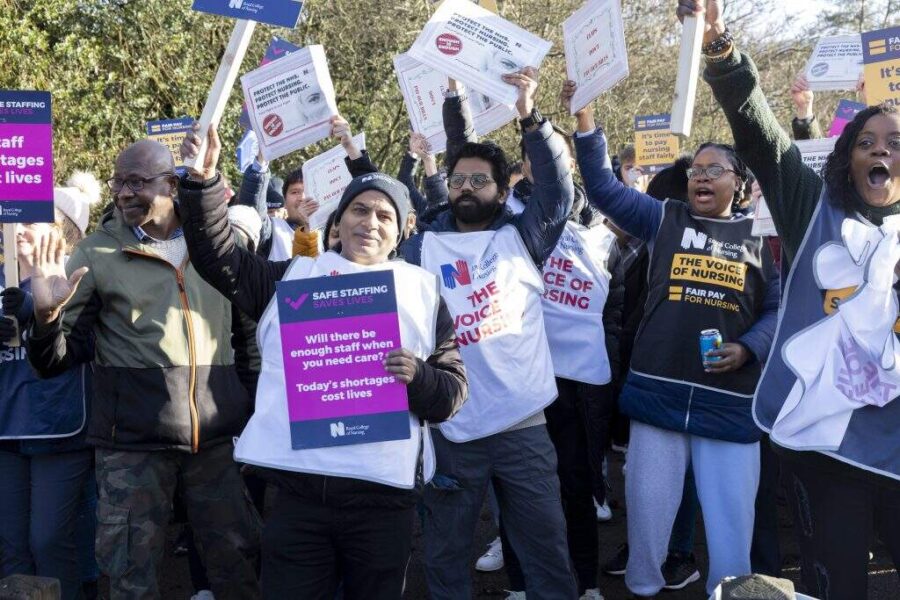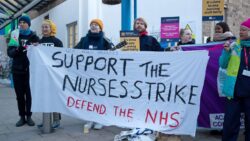Nurses’ strike paused as talks are scheduled
The Royal College of Nursing (RCN) and government ministers are scheduled to engage in intensive talks after the RCN called off a 48-hour strike in England.
Health Secretary Steve Barclay will meet with RCN leader Pat Cullen to discuss a possible compromise to end the impasse over pay. Talks will likely focus on next year’s pay rise due in April.
One option is to backdate it by several months, providing nurses with an additional pay boost for part of this year. The Treasury, concerned about inflation, has rejected proposals to increase pay for NHS staff above the average 4.75% received this year.
The resumption of talks follows the government’s submission to the independent NHS Pay Review Body, which suggests a 3.5% increase for all NHS staff next year. If the pay rise is backdated to before April, it would mean a double boost in pay for those months.
The RCN strike was set to be the largest of the winter pay dispute and would have affected half of frontline services. Talks will focus on finding a fair pay settlement for nursing staff, and both parties are determined to reach an agreement as quickly as possible to prevent further strikes.
Other health unions expressed disappointment that they were not invited to the discussions, while NHS Providers’ CEO Sir Julian Hartley said the NHS would be relieved by the resumption of talks after a worrying escalation of industrial action that had affected patients.

What is inflation?
Inflation refers to the rate at which the general level of prices for goods and services is increasing over time. It means that the purchasing power of a currency is decreasing, and so a fixed amount of money will buy less and less over time. Inflation is typically measured by calculating the percentage change in the Consumer Price Index (CPI) or the Retail Price Index (RPI) over a period of time.
High inflation can be a concern for governments and central banks, as it can reduce the value of savings and investments and make it more expensive for businesses to borrow money.
Low inflation or deflation can also have negative consequences for the economy, such as decreased demand and reduced economic growth. Central banks often aim to keep inflation within a target range to promote economic stability.
What is the NHS?
The NHS stands for the National Health Service and is the publicly funded healthcare system in the United Kingdom. It was established in 1948 and provides free medical care, including hospital treatment and doctor visits, to all legal residents of the UK. The NHS is funded through taxes and provides a wide range of health services, from general practitioners (GPs) and emergency care to specialist treatments, such as cancer care and mental health services. It is one of the largest and most comprehensive health systems in the world, and is a source of pride for the UK.
What is the Royal College of Nursing (RCN)?
The Royal College of Nursing (RCN) is a professional association and trade union for nurses in the United Kingdom. It was founded in 1916 and is based in London.
The RCN represents the interests of nurses in the UK and works to promote high standards of nursing practice and patient care. It also provides education, training, and professional development opportunities for its members, as well as offering support and advice on workplace issues, such as pay and conditions.
The RCN is one of the largest nursing organisations in the world, with a membership of over 450,000 nurses and healthcare assistants, including those who work in the National Health Service (NHS), private healthcare, and other settings.





